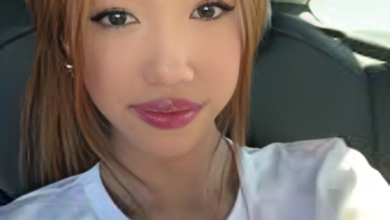
InfluencersGoneWild What It Really Means and Why Its Trending Online
In recent years, the internet has witnessed the explosive rise of social media influencers—individuals who build a loyal following online and use their platforms to promote products, lifestyles, or ideas. But along with their popularity comes controversy, curiosity, and viral moments. One trending phrase that has gained attention across social platforms and forums is “InfluencersGoneWild.”
What does this term really mean? Is it just another clickbait title, or is there more behind the hype? In this article, we’ll explore the origin, context, and cultural impact of InfluencersGoneWild, and why it’s become such a hot topic online.
What is “InfluencersGoneWild”?
“InfluencersGoneWild” is a phrase used to describe scenarios where social media influencers engage in behavior considered outrageous, unexpected, or scandalous—often in public or on their own platforms. The term plays off the concept made famous by early internet and DVD culture where ordinary people or celebrities were caught in “wild” or compromising moments.
But today, this term has morphed into something broader. It can refer to:
- Influencers behaving inappropriately in public.
- Leaked or intentionally shared adult content.
- Behind-the-scenes videos showing the “unfiltered” side of influencer life.
- Satirical or meme-based content mocking influencer culture.
It’s important to understand that the phrase does not always imply explicit content—though it often draws traffic due to its provocative tone. In many cases, it reflects society’s fascination with the private lives of those who are seemingly “always online.”
Why Is It Trending?
There are several reasons why “InfluencersGoneWild” has become a viral phrase:
1. The Rise of Influencer Culture
With platforms like TikTok, Instagram, and OnlyFans skyrocketing in popularity, influencers are no longer just endorsing makeup or lifestyle brands—they are the brands. As a result, everything they do is under a microscope.
2. The Appeal of Unfiltered Moments
Audiences have grown tired of perfectly curated content. They crave authenticity. When influencers are caught in raw, unedited moments—whether hilarious or controversial—people can’t stop watching and sharing.
3. Meme and Viral Culture
The internet thrives on exaggeration. The more outrageous the title, the more likely people are to click. “InfluencersGoneWild” taps into that energy with a tongue-in-cheek approach, often used in memes and parody videos.
4. Controversies and Leaks
Occasionally, influencers do find themselves in the middle of real scandals—from legal troubles to NSFW content leaks. These moments are often quickly labeled under the umbrella of “gone wild” by gossip forums and social media users.
Is It a Website or Just a Hashtag?
If you’ve Googled “InfluencersGoneWild,” you may have stumbled across forums, content-sharing sites, or even paid platforms that use the term. In many cases, these are not official influencer-run websites, but rather user-submitted platforms that collect content (sometimes without consent).
Warning About Content Authenticity and Legality
Much of the content on such websites or forums may:
- Be shared without the subject’s permission.
- Contain explicit material not appropriate for all audiences.
- Violate privacy or copyright rules.
Users should always be cautious when browsing such content and ensure they are not participating in or promoting unethical behavior online.
The Ethics of “Going Wild” as an Influencer
For influencers themselves, there’s a fine line between maintaining authenticity and oversharing. Many feel pressure to stay relevant, leading to more extreme behavior:
- Posting risqué photos or videos to boost engagement.
- Staging dramatic events or confrontations.
- Participating in “leaked content” marketing tactics (a growing trend where leaks are actually planned PR moves).
While some fans appreciate the behind-the-scenes exposure, others feel it can be manipulative or even damaging to young audiences.
When It’s All Just Satire
It’s important to highlight that not all “influencers gone wild” content is serious. In fact, many creators use this term in a completely humorous or parody-based way. For example:
- TikTokers making fun of influencer “apology videos.”
- Instagram reels showing influencers doing ridiculous stunts in public.
- Twitter users joking about influencers “losing their minds” over trivial issues like iced coffee.
This satirical take helps demystify influencer culture and reminds audiences not to take every viral moment at face value.
How Brands and Influencers Can Respond
If you’re an influencer (or represent one), here are ways to navigate or avoid the “gone wild” label:
1. Maintain Boundaries
Even if your brand thrives on bold content, establish clear boundaries for what you will and won’t share. Always consider how something might appear out of context.
2. Engage Authentically
Don’t just chase viral fame. Audiences respect influencers who keep it real without compromising their integrity.
3. Monitor Reputation
Use social listening tools to track mentions of your name or brand. If someone is sharing harmful content or impersonating you, take swift legal or platform-level action.
Should Viewers Be Concerned?
As consumers of online content, it’s worth asking ourselves: why do we enjoy watching influencers go off-script?
Psychologists suggest it’s tied to parasocial relationships—the one-sided connection we feel with influencers. When they act out, we feel like insiders witnessing their “real selves.” But this kind of voyeurism can blur ethical lines.
If you’re watching leaked content or drama for entertainment, ask:
- Was this content shared with consent?
- Is someone being harmed, mocked, or harassed?
- Am I feeding into cancel culture or online bullying?
Conclusion: What We Can Learn from “InfluencersGoneWild”
“InfluencersGoneWild” isn’t just a buzzword—it’s a reflection of today’s internet culture. It shows how digital fame, voyeurism, and content-hungry algorithms intersect. It also reminds us how fast someone’s private moment can become public entertainment.
For creators, it’s a cautionary tale. For audiences, it’s a prompt to be more thoughtful about what we consume and share.
In a world where everyone with a smartphone has a platform, the line between real life and performance is thinner than ever. The phrase “InfluencersGoneWild” may fade with time, but the themes behind it—authenticity, boundaries, and digital accountability—are here to stay.
Tags: influencersgonewild, influencer culture, social media scandals, online fame, viral trends, influencer drama, NSFW influencers, social media ethics, influencer marketing
Would you like a downloadable version of this article or help turning it into a blog post with images and SEO metadata?
4o



